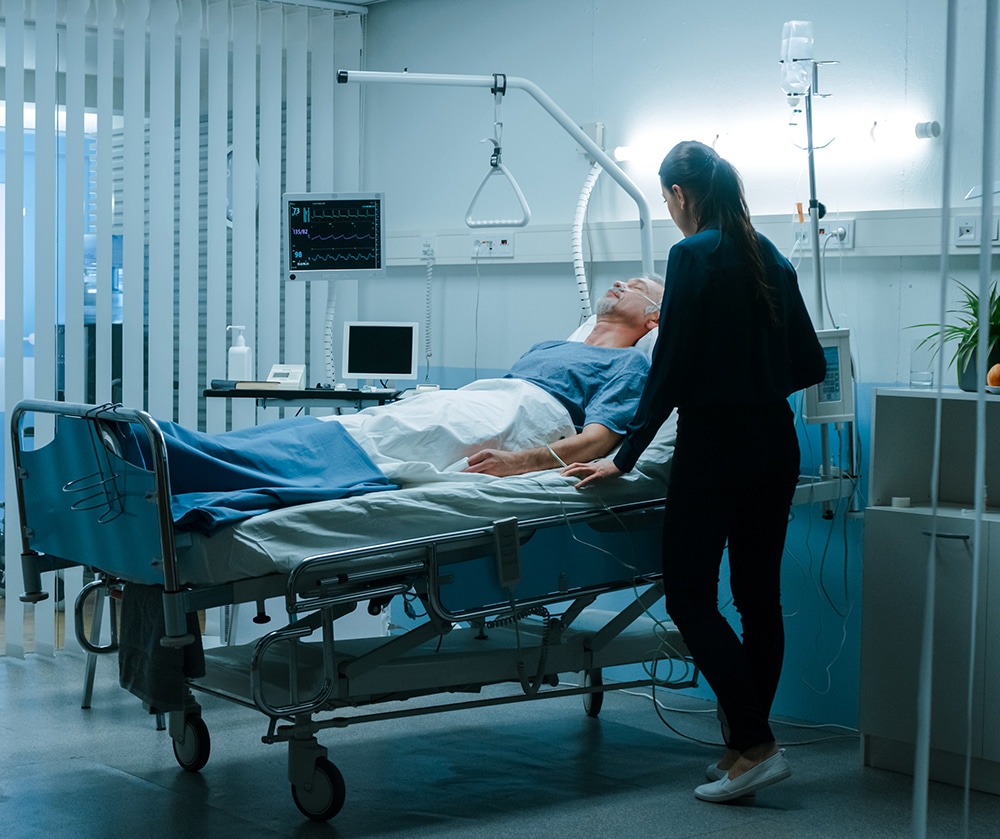
By Sharnita Midgett
A sudden change in thinking or behavior, known as delirium, affects as many as half of all Americans ages 65 and older once they are admitted to a hospital. Despite this, delirium is still underrecognized by medical professionals. As the Global Council on Brain Health wrote, “you likely have never even heard of it.”
The Global Council on Brain Health (GCBH) discussed what delirium is and released several recommendations to prevent and treat delirium in a recent report. PMC Co-Director Jason Karlawish, MD, is a member of the GCBH Governance Committee.
“Delirium is sort of a product of many different factors coming together: an aging brain, one that’s acutely ill; going to a hospital, a changing environment; a host of other changes, a host of other noxious stimuli to the brain from some of the medications that are given,” Dr. Karlawish told Being Patient in a discussion on delirium.
Delirium is caused by a change in the way the brain works, and often can result in confusion, inattention, agitation and sometimes hallucinations. These symptoms can lead to physical harm. Many people recover from delirium, but it can have lasting impacts on brain health and create long-term trouble with memory and thinking skills. While some healthcare staff view delirium as something that happens with age, the GCBH argues that it “is a serious medical condition and should be recognized as a medical emergency.”
The good news is that delirium is preventable in up to 40 percent of cases.
“By implementing relatively simple, cost-effective measures, patients, caregivers and health care providers can help protect people’s brain health and save billions of health care dollars,” report authors wrote.
The GCBH offers several recommendations for individuals, caregivers, and healthcare workers to prevent and treat delirium.
Recommendations for individuals include:
- “Prehab” for any planned hospitalizations; prepare as if you were training for a sports event (exercise, diet and good sleep).
- Bring a list of your current medications and supplements.
- Ask for delirium/cognitive screening before undergoing elective surgeries.
- Bring hearing aids, eyeglasses, and dentures.
- Ask friends and family to stay with you 24/7.
- Get exposure to sunlight during the day.
- Close the door to your room, use earplugs, a sleep mask or bring a familiar pillow or blanket to sleep better.
- Don’t make important financial or other decisions until fully recovered.
Recommendations for caregivers include:
- Seek medical help if you notice if your loved one is “just not themselves.”
- Assist in orientating your loved one to know the day and time.
- Question healthcare providers about medications being used; some common medications increase risk of delirium.
- Help your loved one to get out of bed and moving after surgery.
- Prepare to assist after leaving the hospital because brain fog can last a long time.
Click here for the full report and complete list of recommendations.